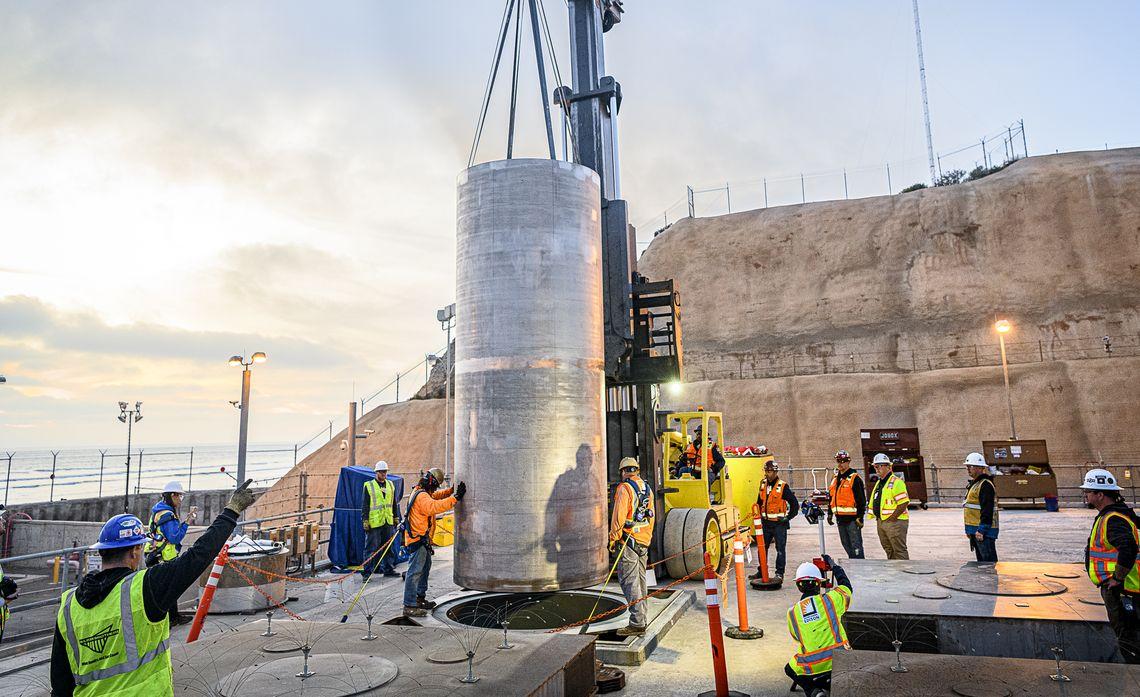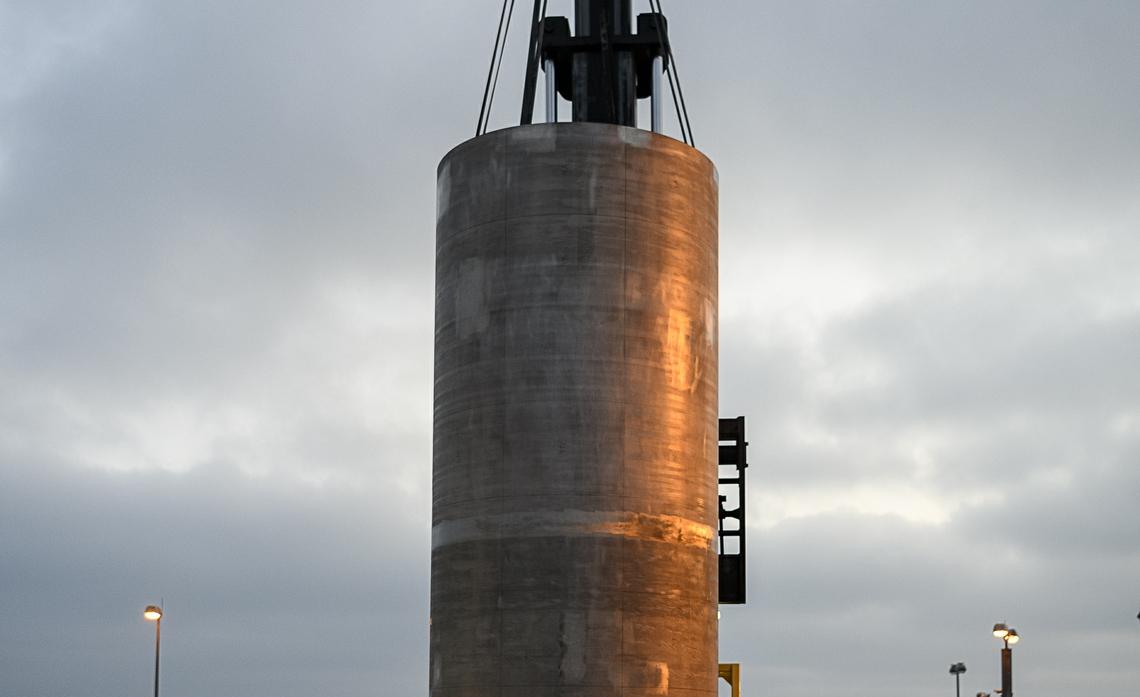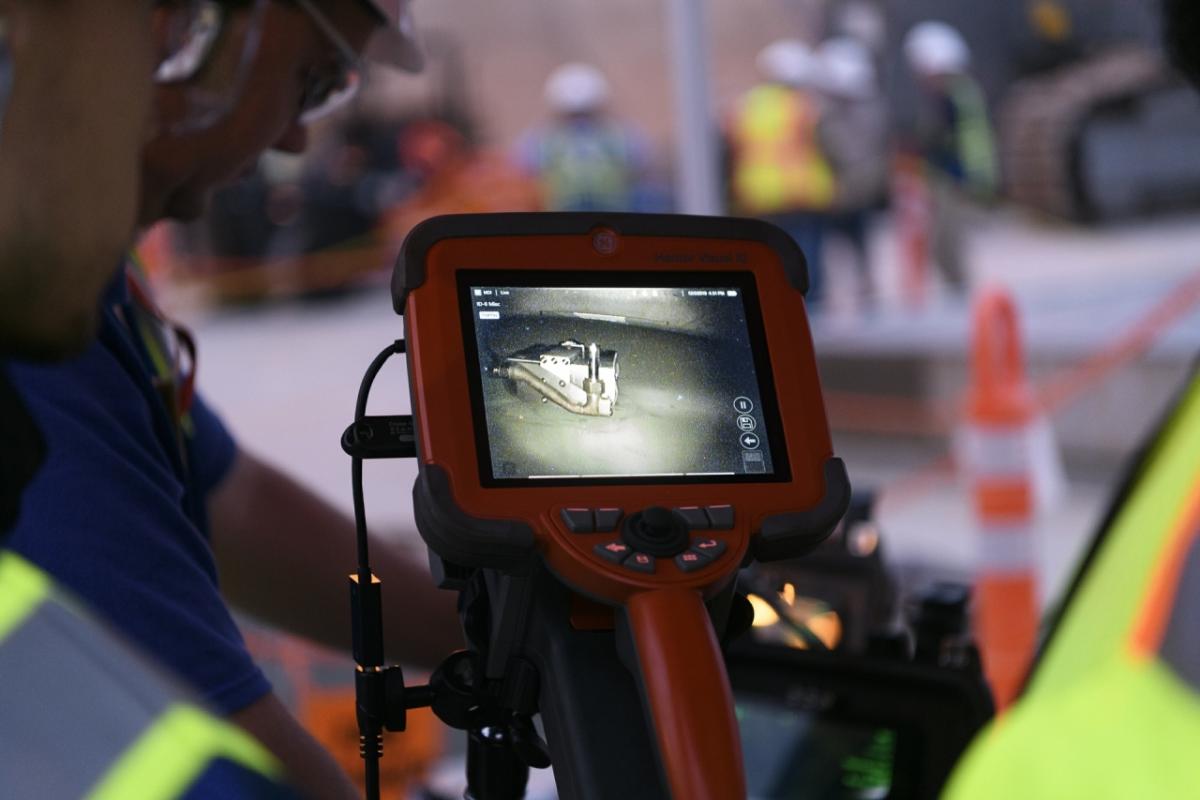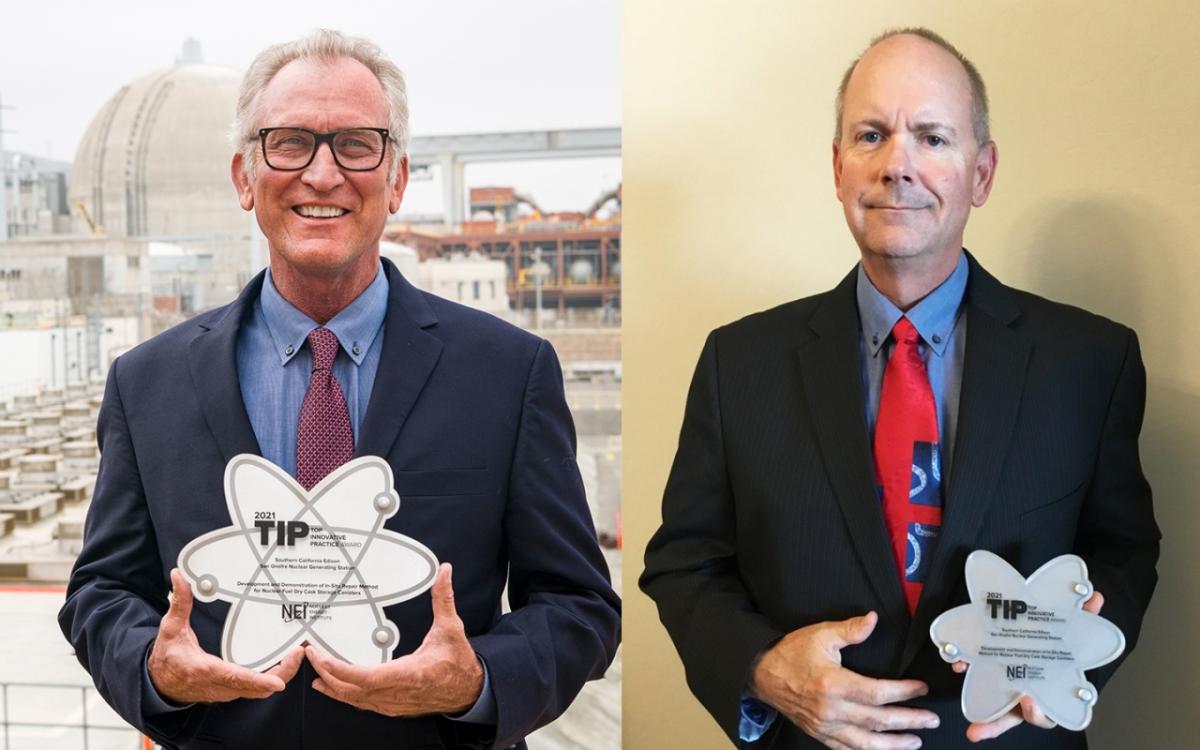SCE Engineers Honored for Enhancing Spent Nuclear Fuel Canister Safety
by John Dobken, Energized by Edison Writer
Originally published by Edison International
The Nuclear Energy Institute recently awarded SCE, as well as industry partners RTT Robotics LLC and VRC Metal Systems, with a Top Innovative Practice Award.
Nuclear energy plant sites across the country store spent nuclear fuel in pools of water or robust stainless steel canisters. As a decommissioning plant, the San Onofre Nuclear Generating Station moved the last of its spent fuel to dry storage canisters in August. There are now 123 canisters of spent fuel stored at San Onofre in two systems. The TN-NUHOMS system, licensed by the Nuclear Regulatory Commission in 2002, holds 50 canisters. The Holtec UMAX system was licensed in 2015 and houses 73 canisters.
A Need to Innovate
While the nuclear industry has been researching inspection and repair methods for spent fuel storage canisters for many years before this Southern California Edison effort, no method existed for repair of a degraded canister.
The consensus is that dry cask storage systems are qualified for a very long life, with the most likely challenge to canister integrity being chloride-induced stress corrosion cracking. Stress corrosion cracking produces a short tight crack, requiring repair over a small area. Because a loaded canister has a high surface radiation dose rate, removal of the canister from its storage location is not desirable. Performing the repair robotically, in place, is the best alternative. With no such repair method commercially available, SCE took the initiative to develop the metallic overlay repair technique.
To develop the repair methodology, SCE reviewed all the technologies that were in the research, development and early implementation phases throughout the nuclear industry and elsewhere. Robotic welding was not new to nuclear, but there were challenges. The gap a robot would have to maneuver in is only four inches wide. And a traditional weld could create more surfaces susceptible to stress corrosion cracking.
The NRC initially licenses dry storage systems for 20 years, then in 40-year increments after that. To ensure the safety and integrity of the systems, the commission requires development of aging management programs that include periodic inspections and monitoring of the canisters. Typically, an aging management program does not begin until after the first 20-year canister storage period.
However, at San Onofre, the inspections will begin much earlier for the UMAX system.
“In our location on the coast, we are required to get a Coastal Development Permit from the California Coastal Commission to build a dry fuel storage system,” said Jerry Stephenson, manager of spent fuel storage engineering at SONGS. “The CCC in 2015 requested that we develop a program much like an aging management plan to do inspection and maintenance, including repair, of the vertical (UMAX) dry storage canisters at SONGS.”
Metallic Overlay
The answer was “cold spray.” Unlike the name implies, it is not a “cold” process, but it is performed at cooler temperatures than a traditional weld, hence the name. SCE dubbed it “metallic overlay.”
“This is a widely used technology developed by VRC Metal Systems and utilized by the military to make repairs to aircraft and even submarines,” said Allen Williams, SCE project manager. “They are extremely talented and were able to create the nozzle that we needed for the tight space around the canister.”
The specially designed nozzle is used to accelerate, to supersonic speeds, small particles of the metal to be applied, in this case nickel. The velocity results in a metallurgical bonding with the base metal of the canister surface on impact, mitigating any degradation, such as a microscopic crack.
The field test was performed in December 2019, using an electrically heated test canister installed at the San Onofre UMAX dry fuel storage system, which simulates a stored canister but with no nuclear fuel inside. Representatives from the NRC, the Electric Power Research Institute and the industry were present to observe.
“The team worked really well together to make this repair method happen,” said Stephenson. “We were able to develop, test, fabricate, field test and qualify the process in a matter of months. The process was demonstrated successfully in both the laboratory and in the field at the SONGS site.”
The Coastal Commission approved the inspection and maintenance program last July after review by an independent engineering firm chosen by the commission. The process developed by SCE was based on initial research performed by EPRI.
The team worked really well together to make this repair method happen. We were able to develop, test, fabricate, field test and qualify the process in a matter of months. The process was demonstrated successfully in both the laboratory and in the field at the SONGS site.”
Jerry Stephensen, SONGS Principal Manager
NEI Award
For their groundbreaking work, the Nuclear Energy Institute awarded SCE, as well as industry partners RTT Robotics LLC, which developed the robotic method to deploy in the repair, and VRC Metal Systems, a Top Innovative Practice Award during NEI’s 2021 Nuclear Energy Assembly. The awards recognize employees whose new ideas and approaches have a direct impact on improving the safety and reliability of nuclear energy.
There are more than 3,400 spent fuel storage casks located at 72 dry storage facilities throughout the U.S., some in place for more than 30 years. None has ever required the type of repair developed by SCE. Still, having it available aligns with SCE’s commitment to safely store spent fuel at San Onofre for as long as it remains on-site.
“We took this challenge seriously and are proud that we were able to push technology forward for the good of the industry,” Stephenson said.





